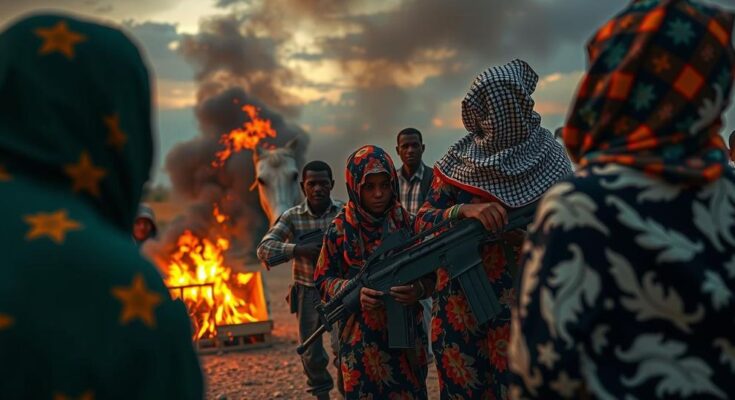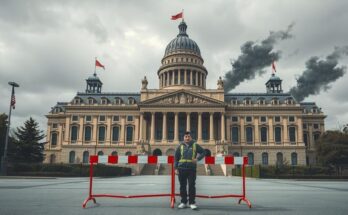Burkina Faso’s government has faced backlash for risking civilian safety during a militant attack, leading to the deaths of over 100 villagers. Human Rights Watch reported forced labor by military forces, worsening the plight of innocent civilians in this conflict-ridden region. The government’s reliance on local militias has only intensified the danger posed by jihadists who target those associated with the military.
Burkina Faso’s government has drawn criticism from Human Rights Watch for allegedly putting civilians at undue risk during a militant attack earlier this year. In August, over 100 villagers perished in a brutal assault by a militant faction affiliated with al-Qaida in central Burkina Faso, marking one of the year’s most lethal incidents in this war-torn region. The villagers in Barsalogho, located about 50 miles from Ouagadougou, were reportedly compelled by security forces to dig trenches for defense. As they labored against their will, fighters from Jama’at Nusrat al-Islam wal-Muslimin invaded and opened fire, resulting in significant casualties. The group later claimed that the fatalities were members of local militias helping authorities. Human Rights Watch’s findings, backed by video evidence and testimonials, revealed that at least 133 individuals, including numerous children, lost their lives, with 200 others sustaining injuries. Ilaria Allegrozzi, the senior Sahel researcher at Human Rights Watch, lamented, “The massacre in Barsalogho is the latest example of atrocities by Islamist armed groups against civilians whom the government has put at unnecessary risk.” Burkina Faso is grappling with profound instability, with nearly half the nation existing beyond government control owing to escalating militant assaults. The country’s experience has seen thousands killed and over two million civilians displaced, contributing to two coups in 2022. While the ruling military junta promised to quell the violence, it has encountered challenges even after seeking new alliances with countries facing similar conflicts in the Sahel region. The reliance on civilian militias, known as Volunteers for the Defense of the Homeland (VDP), has heightened dangers for non-combatants. Allegrozzi warned that these volunteers often become targets for jihadists who view them as affiliated with the military. Testimonies gathered reveal that soldiers coerced local men into trench-digging without compensation, often accompanied by threats and physical violence. In response to the Human Rights Watch report, Burkina Faso’s justice minister, Edasso Rodrigue Bayala, dismissed claims of forced labor, asserting, “Testimonies according to which the military forced the populations to dig the trench are not proven.” This ongoing conflict underscores the precarious balance between civilian safety and militant threats in Burkina Faso.
Burkina Faso has been ravaged by civil unrest and militant attacks for years, with extremist groups like al-Qaida and the Islamic State infiltrating the region. Many areas of the country are now beyond governmental control, exacerbating the cycle of violence and instability. The transition to military governance has led to failed security strategies, with armed civilian auxiliaries further complicating the landscape by drawing threats both from militants and factions within the government itself.
The situation in Burkina Faso paints a grim picture, where government actions may inadvertently expose civilians to greater danger amidst a wave of terrorism. The recent attack on Barsalogho reflects ongoing challenges faced by authorities and the risks confronting ordinary citizens caught in the conflict. Addressing these concerns requires serious reconsideration of military strategies to ensure the safety of innocents while combating extremist threats.
Original Source: apnews.com



